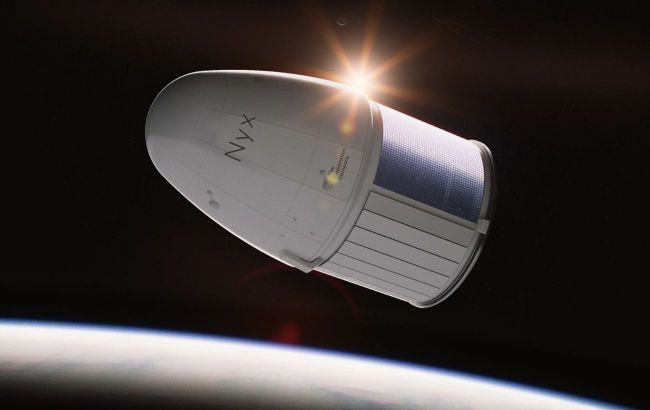Nyx mission to ISS ends in failure: Capsule crashes into Pacific Ocean
 Capsule with the ashes of the deceased didn't make it to the ISS and fell into the ocean (photo: exploration.space)
Capsule with the ashes of the deceased didn't make it to the ISS and fell into the ocean (photo: exploration.space)
The space industry continues to expand the horizons of what is possible, sending increasingly unusual cargo into space. However, not all missions end successfully. A recent incident involving the European capsule Nyx, which was transporting human remains and cannabis for experiments, vividly demonstrates the unpredictable risks of space flights. Universe Today tells what happened to the capsule carrying human ashes, cannabis, and DNA.
Mission suddenly ended at the ocean bottom
On June 23, 2025, the German aerospace startup The Exploration Company launched its Nyx capsule from the Vandenberg Space Base with the help of a Falcon-9 rocket. This mission, named "Mission Possible," had a special cargo:
Human remains and DNA: over 166 deceased individuals from the company Celestis, specializing in memorial space flights.
Cannabis and seeds: provided by the Martian Grow project to study the effect of microgravity on plant germination and resistance, which could potentially assist in research on adapting life to the Martian environment.
Although the capsule successfully reached orbit and performed a controlled re-entry into the atmosphere, the Nyx landing parachutes failed to deploy.
This led to a hard landing of the capsule in the Pacific Ocean on June 24, causing the entire cargo to be lost. This was the first time The Exploration Company had sent commercial cargo, totaling about 300 kg.
Partial success, partial failure
In its statement, The Exploration Company called this flight a "partial success (partial failure)." Company representatives noted:
- The capsule successfully launched and powered the payloads into orbit.
- It stabilized after separation from the launch vehicle and regained communication.
- However, communication was lost just minutes before landing.
The company is currently investigating the cause of the failure and has apologized to the clients who entrusted it with the mission.
"This partial success reflects both ambition and the inherent risks of innovation," the statement emphasized, underscoring the intent to incorporate lessons for future flights.
Second loss of space cargo
For Celestis, this is the second case of cargo loss. The previous incident occurred in 2023, when a rocket carrying the remains (ashes) of deceased NASA astronaut Philip C. Chapman exploded over New Mexico.
Celestis issued a statement expressing condolences to the families of the deceased: "In the coming days, our team will contact each family individually to offer support and discuss possible next steps."
They also noted that, although retrieving the capsules is impossible, families can find solace in knowing that their loved ones "were part of a historic journey, launched into space, orbited the Earth, and now rest in the boundless expanses of the Pacific Ocean, similar to a traditional and honored sea burial."
Future ambitions: ISS in 2028?
This latest mission was aimed at testing key technologies and verifying Nyx's ability to transport cargo.
The Exploration Company hopes that future versions of the capsule will be able to deliver cargo to low Earth orbit (LEO), including the International Space Station (ISS) or its successors.
The company plans to conduct a demonstration flight to the ISS in 2028 with the support of the European Space Agency.
Despite the parachute failure, the company is determined to move forward, using the lessons learned to continue innovations in space transportation.
Earlier, we reported that a private commercial spacecraft "got lost" 300,000 km from Earth.

